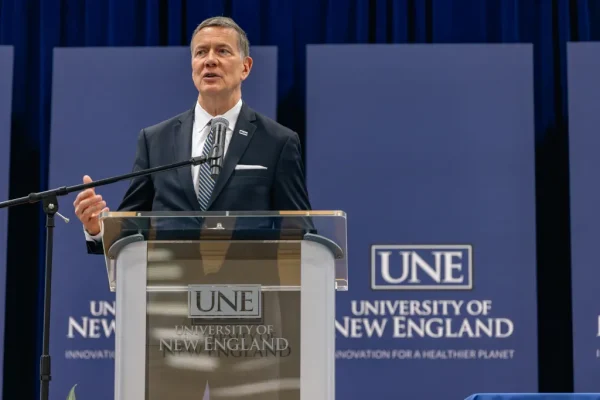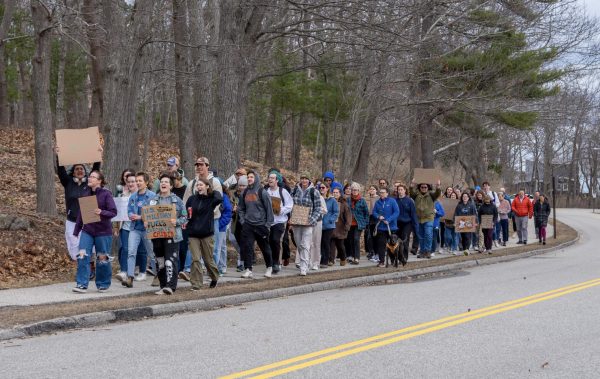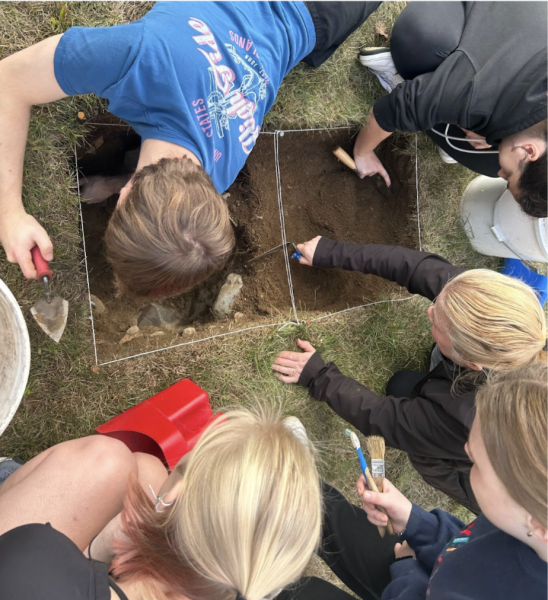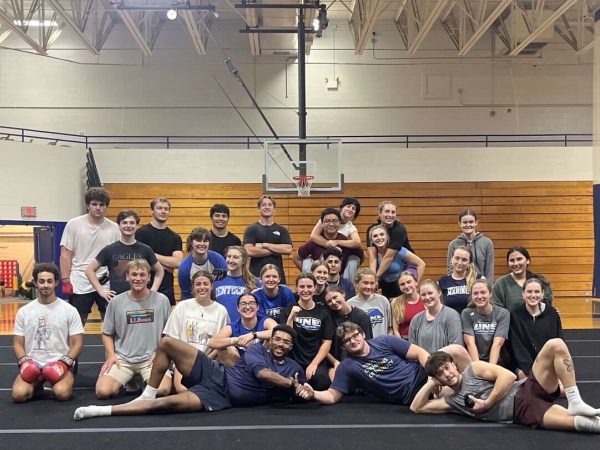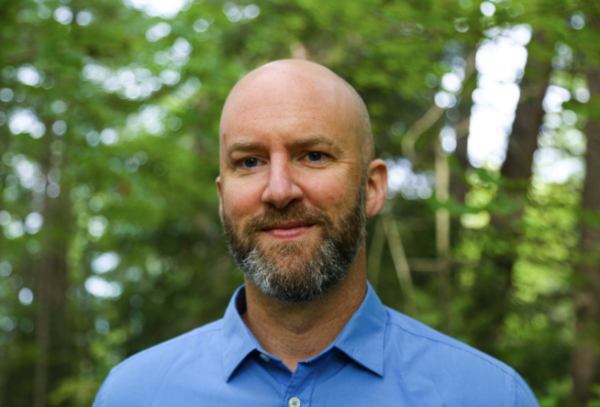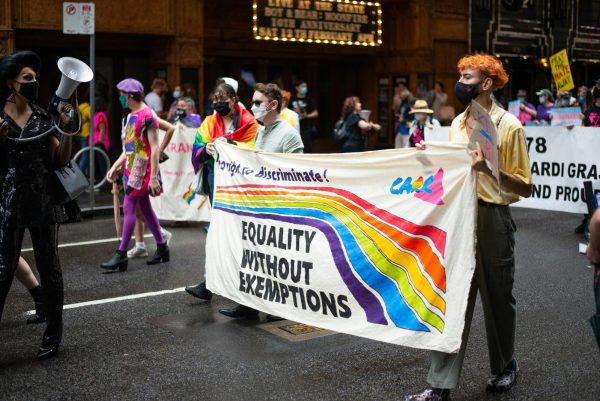President Herbert’s Block Scheduling Forum: Looking at future scheduling changes and passionate student responses
On Friday, February 18th, it was announced to the student body that President Herbert would be hosting an open forum to address student concerns surrounding the upcoming change to block scheduling coming next semester.
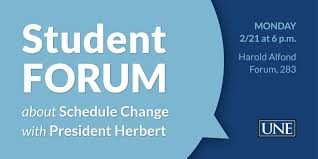
The large lecture hall in the Alfond Forum was arranged with rows of seating, which would become quickly filled with students and faculty. This went on to the point where nearly every seat was filled, and the back wall where many chose to stand was overflowing into the hallway. Concerned students already had their statements prepared as James Herbert began the forum, addressing common concerns and reasoning behind the decision.
The President’s first acknowledgement was that UNE administration “did not do a good enough job socializing the change,” a sentiment which resounded with many that were gathered. The President’s statements were not met with applause, but a respectful silence carried through the room as he spoke. He went on to affirm that student success is the overarching goal when these decisions are made, and noted a few unpopular decisions; such as shifting the last two years of the nursing program to the Portland campus, getting back to in-person learning during the Fall 2020 semester, and even expanding UNE to the other side of Route 9. Perhaps those gathered felt a cold comfort in the hopes that another decision, initially controversial, may meet with long-term benefits.
Before opening up the conversation, President Herbert went on to address a number of common concerns. Details such as how most universities have a five day schedule and UNE is a rare case, how 12 years ago UNE ran from Monday to Friday, and how 62 CAS classes from this semester take place on Fridays.
In his own words, the change is made to address stress, burnout, and mental health concerns.
The MWF block had classes that many consider to be too short and getting rid of this block leaves only the prospective Monday-Thursday and Tuesday-Friday blocks, therefore proposing Wednesday to be the new light day. This light day was created to enhance hands on learning and allow for time during the week for faculty engagement, catching up on homework, and R&R. Another major concern is that of UNE being a “suitcase campus”, where many students are packed up and gone for the weekend by Friday. Students feel like this is trapping them on campus, but the ideal result is the creation of a vibrant social life for students during the weekends.
At this point students were given the opportunity to have their concerns heard, here are a few questions that followed:
Question: What about the lack of Greek life on campus?
President Herbert: A vibrant life and parties don’t have to come from Greek life, and UNE doesn’t allow for it, as there are many disadvantages that are carried with it.
Student Response: Greek life isn’t all about partying, there are also many connections that can be made by being a part of a sorority or fraternity.
Q: What about weak on campus mental health services?
PH: There is currently a misunderstanding of how to access counseling services, as many students want an appointment today or tomorrow, but these slots aren’t left open as they often have to weigh cases and choose to treat more extreme issues first.
Q: Will there be an increased faculty workload?
PH: Professors are already expected to be at UNE full time, so this change should not have too much effect on them. This isn’t something you have to worry about.
Student Response: During this affair, students were applauding those asking questions and generally vocalizing when they heard the good and the bad. A student rose and challenged James Herbert, questioning why he gets to decide what people worry about.
Q: What about Friday club meetings? Will they be affected?
PH: Classes shouldn’t go later than they already do, and the schedule will be posted in early March to see how students must adjust to the new schedule.
Q: What about increasing student aid for students who are now able to work less?
PH: We’ve doubled the university’s endowment, and are always trying to increase student aid, but there are no promises for next fall.
When asked about better gauging student opinion, President Herbert responded by announcing a “new chapter of improved communication,” while also waving the idea of having students vote on future issues as he wouldn’t want to be put in a position where the results would have to be ignored in the decision-making progress and make the student voice feel meaningless.
While these questions and recommendations were being made, pointed applause followed nearly every statement. Though this isn’t to imply the room was in chaos. At points emotions ran hot, yet even in these moments, a modicum of respect for putting on this event could be heard. President Herbert has been listening to these responses and must have been sure of the vitriol that would reign.
“I’m glad there was an opportunity for students to speak their mind, but it was frustrating that there wasn’t a possibility of change that could come out of it,” states student Kiara Frischkorn. This is a sentiment that was felt by many, the futility that was felt when faced with a decision that they were not consulted in and may greatly affect their on-campus life.
Although the threats of transfer and protest lie thick in the campus climate, there is still hope that this change may result in a new and better way of living and studying at UNE. For now, we all will have to rest and anticipate what may come.





